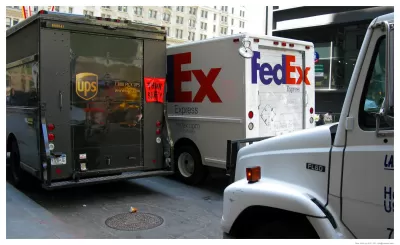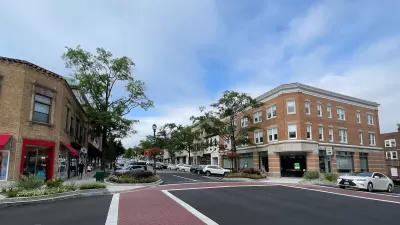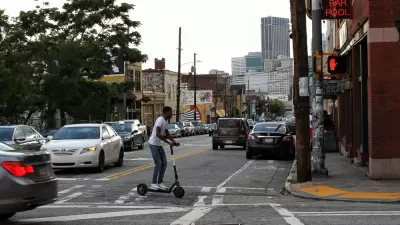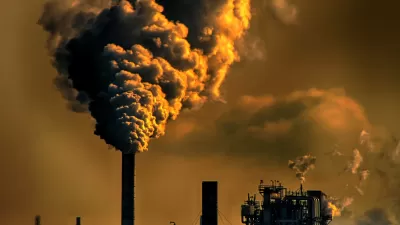With urban pollution and traffic violence disproportionately affecting communities of color, better management of public space and streets could improve equity in cities.

Sahar Shirazi assesses the changes to streets and public space brought on by the pandemic, noting that "fallout often hits hardest on those historically marginalized and those most vulnerable." As we make dramatic changes in how we use public space, Shirazi argues that "[i]t is essential, now more than ever, that any urban equation factor in the reality that our urban environments have historically been unequal places."
The choices made by policymakers now "can either exacerbate those inequities, or mitigate them." Shirazi points to the intensifying battle over curb space as one area where "cities can use their existing authority over curbs to shift driver behavior, more effectively allocate curb space to match the needs of the community, and improve safety, environmental sustainability, and revenue generation," partnering policy with technology to "intelligently and democratically mitigate the negative impacts of these changes and improve life for all city-dwellers, especially those already facing financial hardship or discrimination."
Shirazi recommends that cities charge companies like Amazon and UPS for parking and curbside access. "Additionally, more efficient parking enforcement can improve traffic flow and reduce transit time, which will also be a boon to lower-income communities which rely more heavily on public transit and frequently have higher greenhouse gas emissions in their neighborhoods and worse air quality than other city dwellers."
Shirazi also emphasizes the importance of achieving two important goals: zero traffic fatalities and zero carbon emissions, both of which disproportionately harm communities of color. "By addressing road safety, parking, emissions, and how we allocate and charge for curb usage, cities can make strides to address inequities present today."
FULL STORY: Op-Ed: Managing Our Streets Better Can Reduce Inequities In Our Cities

Maui's Vacation Rental Debate Turns Ugly
Verbal attacks, misinformation campaigns and fistfights plague a high-stakes debate to convert thousands of vacation rentals into long-term housing.

Planetizen Federal Action Tracker
A weekly monitor of how Trump’s orders and actions are impacting planners and planning in America.

In Urban Planning, AI Prompting Could be the New Design Thinking
Creativity has long been key to great urban design. What if we see AI as our new creative partner?

King County Supportive Housing Program Offers Hope for Unhoused Residents
The county is taking a ‘Housing First’ approach that prioritizes getting people into housing, then offering wraparound supportive services.

Researchers Use AI to Get Clearer Picture of US Housing
Analysts are using artificial intelligence to supercharge their research by allowing them to comb through data faster. Though these AI tools can be error prone, they save time and housing researchers are optimistic about the future.

Making Shared Micromobility More Inclusive
Cities and shared mobility system operators can do more to include people with disabilities in planning and operations, per a new report.
Urban Design for Planners 1: Software Tools
This six-course series explores essential urban design concepts using open source software and equips planners with the tools they need to participate fully in the urban design process.
Planning for Universal Design
Learn the tools for implementing Universal Design in planning regulations.
planning NEXT
Appalachian Highlands Housing Partners
Mpact (founded as Rail~Volution)
City of Camden Redevelopment Agency
City of Astoria
City of Portland
City of Laramie





























